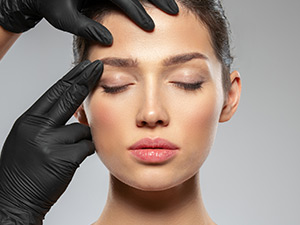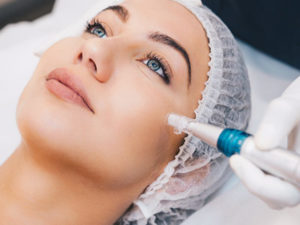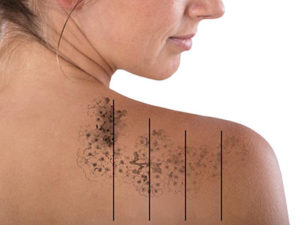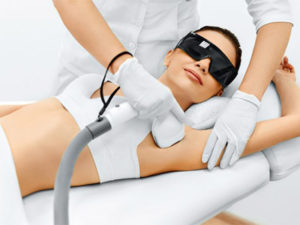Essential Guide to Laser Hair Removal While Pregnant
While pregnancy is a special time in a woman’s life and the pregnancy glow brings to mind of having radiant and smooth skin coupled with beautiful and luscious hair, there are many factors that nature throws in that makes it a challenge. If you are pregnant and considering having laser hair removal, it is very important to prioritize the safety of your child and make the most informed decisions. There are currently no long-term studies that analyze the effects of laser hair treatment on unborn babies. Many healthcare providers actually advise that you do not get laser hair removal while you are pregnant. For this reason, it is best to play it safe and opt to have laser hair removal after the birth of your child.
Can You Get Laser Hair Removal During Pregnancy?
Many health care providers recommend not to have laser hair removal during pregnancy because of the lack of information about any possible effects it may have on the fetus.
Hormonal influences in pregnancy
Pregnancy brings about great hormonal changes which affect your body as soon as you conceive. During pregnancy, the levels of estrogen and progesterone in a woman’s body are high to support the growth and development of the baby. Many women have changes in hair texture and growth during pregnancy. Hormones can make your hair grow faster and fall out less. If you get an increase in testosterone, for example, excess hair can be the result. But these hair changes usually aren’t permanent. Also, there is a rapid increase in estrogen, which is largely responsible for belly hair during pregnancy. These new hairs are thicker and darker than the hair on your head.
Safety Precautions for Laser Hair Removal During Pregnancy
Before the procedure, ensure to consult with your OB-GYN practitioner for written clearance.
The Ideal Stages of Pregnancy for Laser Hair Removal
While laser hair removal is unsuitable during the first trimester of pregnancy, you can continue with your treatment during the second and third trimesters provided you have obtained mandatory medical clearance prior to proceeding. This is to ensure no unrelated complications occur during the treatment. During pregnancy it is of utmost importance to avoid laser hair removal to the bikini line and abdomen areas.
One thing to note is that hair removal isn’t recommended before a c-section. Even if you don’t have a c-section planned, it’s best not to remove hair on your lower abdomen or right above your pubic bone near your due date, just in case a c-section is needed. Shaving this area before surgery can irritate the hair follicles and increase the risk of infection.
Products to use post laser treatment
Should you happen to proceed with laser hair removal, we have a soothing lotion for use from our skincare range. EvolveMD Laser Soothe, is a gel which immediately calms inflamed and irritated skin post laser treatment and is very effective in relieving acne and sunburn. This is suitable for all skin types. We also have evolveMD – Activated Charcoal Scrub, which is a dual action exfoliant combining Activated Charcoal with AHA’s and black rice granules. It effectively exfoliates the skin, treating ingrown hairs, removing impurities and releasing dead skin cells. This is suitable for oily or congested skin.
Alternatives to Laser Hair Removal During Pregnancy
There are a few alternative safe hair removal methods to use while pregnant, including:
Waxing – Waxing is safe, however, there are a few things to consider.
Because of an increase in blood flow to your skin – and your pubic area – your skin may be more sensitive and waxing may be more painful than usual during pregnancy. If you want to get a Brazilian or bikini wax, be sure to let your aesthetician know you are pregnant and ask them to be as gentle as possible. Avoid waxing sunburned skin or areas with melasma, a common pregnancy skin change. Waxing can make melasma worse since it can cause inflammation to the skin.
Sugar waxing – If your skin is extra sensitive to waxing, you could try sugar waxing. Sugar waxing is a method of hair removal that involves applying a sticky paste made of sugar, lemon juice, and water to the skin and then removing it, along with hair, using a cloth strip. This method can be less painful than waxing.
Shaving or clipping – another option for hair removal if you find waxing too harsh.
Threading or Tweezing – old fashioned ways of hair removal if you can tolerate pain as the skin will be much more tender during pregnancy.
Hair removal creams – while there’s no evidence proving depilatory creams are harmful to developing babies, it’s probably best to skip them until after you give birth. If you feel you must use them, get clearance from your doctor first and make sure to apply on a well-ventilated area after testing the product on a small patch of skin. If you’re especially worried about the exposure to chemicals, you might want to wait until the second or third trimester to use a depilatory. Again, it is best to consult your doctor before going ahead
Tips for managing unwanted hair
For small hair removal jobs — like shaping your eyebrows, removing pesky chin hairs or zapping stray upper lip hairs – tweezing and threading are probably your best options.
Soften your skin and hair before you shave. A good shower will do the trick, but do not shave in the shower, it is way too easy to lose your balance – and a slip-up could be serious. Both manual razors and electric shavers are safe to use, but always use a new blade so you’re less likely to draw blood. Do not share a razor with your partner as this adds the risk of infections. When you’re shaving your legs, do so with care (and a lot of nick-protecting shaving gel), since your balance is more likely to be a bit off (plus you’ll be less and less likely to see beyond your growing belly).
- Stand while you’re shaving. If you’re sitting down, you’ll have even more trouble seeing the area and may be more likely to injure yourself.
- Always use a shaving cream or gel and shave in the direction of the hair growth, rinsing after each swipe with the razor.
- Use a fragrance-free moisturizer to reduce post-shaving dryness when you’re done.
Waxing and sugaring, as always, these products should never be used on the nose, ears or nipples; over varicose veins, moles or warts; or on irritated, chapped or sunburned skin.
Avoid waxing areas of the body affected by melasma, AKA the mask of pregnancy, or waxing anywhere if you’re using an antibiotic.
Hair bleaching is no No-Go! – while you may have masked unwanted hair growth with bleach in the past, you should avoid this hair removal method during pregnancy. Since it’s applied directly to your skin, there’s a chance you absorb some of the chemicals and possibly pass them on to your unborn child.
Conclusion
Bottom line is that since no reliable studies have been done to determine if laser hair removal is safe for pregnant women, it’s best to wait on these methods until after giving birth.
Although the extra fuzziness you experience while you’re expecting can be annoying and embarrassing, the good news is there are several options for safe hair removal during pregnancy. Remember that your new hairiness is fleeting. Things should return to normal about 6 months after giving birth. You should consult your medical practitioner for an evaluation of the risk-benefit ratio of going ahead with the procedure.
FAQ
- Is it safe to get laser hair removal during pregnancy?
There are safety concerns as there is no confirmation of the effects of Laser Hair Removal on fetuses. - At what stage of pregnancy is laser hair removal considered safe?
It’s generally safer to wait until after you give birth to have laser hair removal. The reason laser hair removal during pregnancy isn’t recommended, is not because of proof it could be harmful but because of lack of proof that it’s safe. Unfortunately, there simply hasn’t been any conclusive research done to show whether the technology will harm a fetus. - What precautions should I take before getting laser hair removal while pregnant?
Visit your medical practitioner prior to making an appointment with your beautician. - Are there any alternatives to laser hair removal for pregnant women?
Yes, alternatives include waxing, shaving, tweezing or threading.














